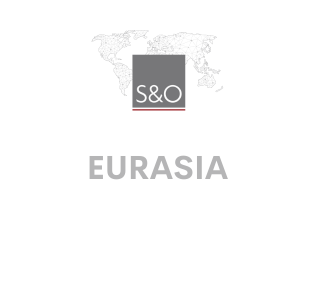THE INTELLECTUAL PROPERTY COURT RECALLED THAT A DOMAIN NAME IS NOT SUBJECT TO EXCLUSIVE RIGHTS
12 Jun 2023
EURASIA
share
The Intellectual Property Court, by its decree of February 16, 2023, upheld the judicial acts previously adopted by lower instances on bringing the individual entrepreneur to civil liability for the illegal use of someone else's trademark.
According to the case file, the company filed a lawsuit against the individual entrepreneur to ban the use of a designation confusingly similar to the company's trademark and to recover compensation. The confusingly similar designation to the plaintiff's trademark was used by the defendant on the pages of the site and in the domain name owned by the latter.
The defendant's arguments that he is the owner of a trademark confusingly similar to the plaintiff's, as well as the fact that the defendant began to use the designation in the site's domain name earlier than the priority date of the plaintiff's trademark, were not accepted by the courts due to the following:
Despite the fact that the defendant was the owner of his own trademark, he used it in relation to those services in which his trademark was not registered. The lower courts reasonably drew attention to the fact that the defendant was aware of the plaintiff's trademark, since when registering the trademark in the name of the defendant, Rospatent opposed exactly the trademark of the plaintiff. There was no evidence in the case file that the defendant owns the right to a commercial designation and that it arose earlier than the priority date of the plaintiff's trademark.
The Intellectual Property Court additionally notes that, unlike a trademark, in respect of which the exclusive right of its owner arises and is protected, a domain name is not subject to exclusive rights. The current Russian civil legislation does not establish any advantage in the possession and use of a domain name, depending on the date of its registration in relation to the priority date of the means of individualization. Thus, the date of registration of a domain name has no legal significance in assessing the legality of using a designation in the domain that is confusingly similar to the trademark of the plaintiff for identical or similar services.
The Intellectual Property Court emphasized that, as a general rule, an infringement of the exclusive right to a trademark is the actual use of a domain name that is identical or confusingly similar to a trademark in relation to goods that are similar to those for which legal protection is granted to this trademark.
The very fact of placement in a domain name of a designation confusingly similar to a trademark/company name owned by the right holder is already evidence of a violation of exclusive rights




